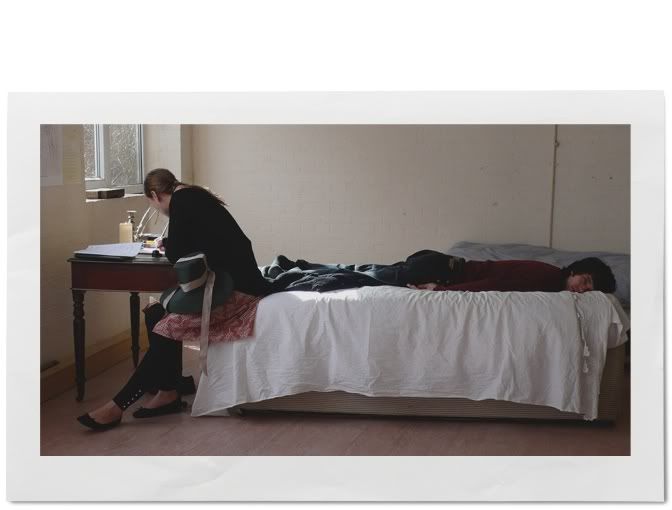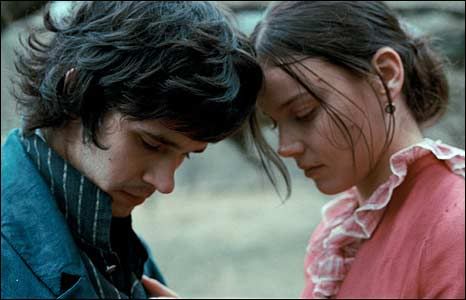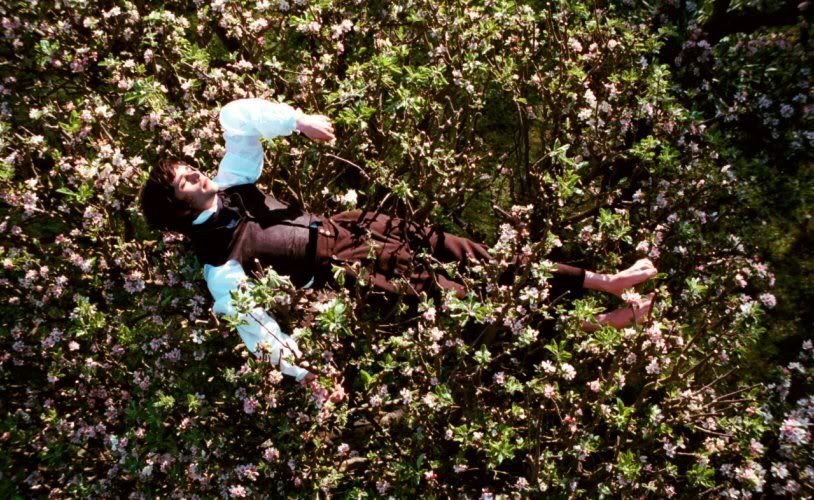Anyway, before this becomes a huge digression on Marie-Antoinette, I'm going to get back to my purpose for the post: a new, "modern" take on the life of Romantic poet, John Keats, is slated to come to theaters this Fall (whether or not it will come to the U.S. remains to be seen).

It is titled Bright Star and focuses on his tragically short love affair with Fanny Brawne, who inspired some of his poetry.

Looking at the cast (Ben Whishaw, Abbie Cornish, et al), it's easy to see why it is being compared to Marie-Antoinette; they're young, they're hot, they've done weird movies in the past. The director (Jane Campion) is critically-acclaimed AND a woman. *gasp!* (Which means a lot of critics will see this movie and report back, "It was incomprehensible... there was no story line..." &c, &c., just like they do with S. Coppola's stuff. Clearly, I do not understand this line of criticism.) The set pictures of costuming and scenery are conceptual and intriguing.

I don't know how modernistic they're going with this, of course, regarding dialogue or music or willful anachronisms, since it has only been screened at Cannes, but I'm excited. It got positive reviews in France, and anyway, it has been all too long since we had a good movie about the Romantics.
Watch an official clip from the Cannes Film Festival on YouTube
When I have fears that I may cease to be
Before my pen has glean’d my teeming brain,
Before high piled books, in charact’ry,
Hold like rich garners the full-ripen’d grain;
When I behold, upon the night’s starr’d face,
Huge cloudy symbols of a high romance,
And think that I may never live to trace
Their shadows, with the magic hand of chance;
And when I feel, fair creature of an hour!
That I shall never look upon thee more,
Never have relish in the faery power
Of unreflecting love!—then on the shore
Of the wide world I stand alone, and think
Till Love and Fame to nothingness do sink.
If any of you know anything more about this film or have seen it, comment away! What do you think about "modernistic" interpretations of historical events? (Think Amadeus, Marie-Antoinette, etc.) Got any good recommendations in that department, book or film-wise?
Visit the unusual official movie site here for Bright Star
Read a glowing review from the LA Times here








I have never tried these modernistic stories..I'm kinda too scared to. It just might ruin the whole thing and then you might not want to ever try it again. I'll have to see..if I do come across one I'll consider it.
ReplyDelete